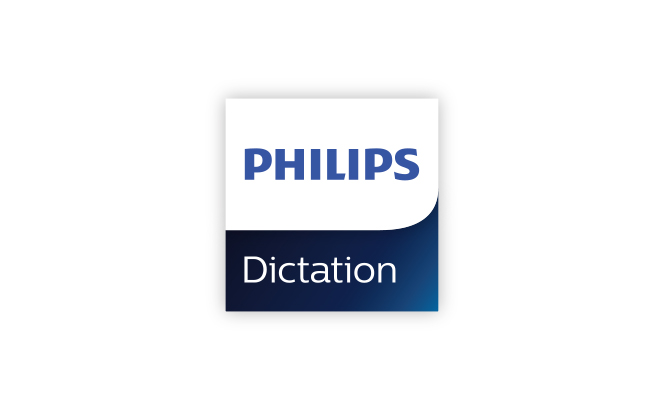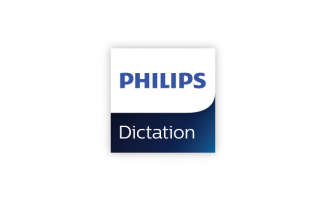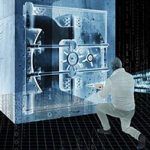Everyone is aware that data breaches and cyber attacks are on the rise globally. It affects organisations across various industries and for legal firms especially it is imperative that security is a top priority. Lawyers need to ensure their documentation is secure to uphold the principles of client confidentiality and attorney-client privilege, this is fundamental to the legal profession. By securing documentation, legal professionals protect against unauthorised access, data breaches, and potential disclosure of confidential information to third parties. Compliance with legal and industry-specific regulations is crucial,and secure documentation ensures adherence to these standards, mitigating the risk of legal and ethical consequences. Additionally, securing documentation reflects the professional responsibility of legal practitioners to safeguard the interests of their clients and maintain the highest ethical standards in the practice of law.
Law firms can enhance their security measures by using cloud-based digital dictation solutions as well as implementing a combination of technical safeguards, best practices, and employee training. Here are key steps law firms can take to protect themselves when utilising cloud-based digital dictation.
Choose a secure cloud provider
Opt for a reputable and secure cloud service provider that complies with industry-standard security certifications. Ensure the chosen provider employs encryption for data in transit and at rest, has robust access controls, and offers regular security audits.
Data encryption
Utilise end-to-end encryption for data during transmission and encryption at rest within the cloud storage. This ensures that even if data is intercepted during transmission or unauthorised access occurs, the information remains secure and unreadable without proper decryption keys.
Strong access controls
Implement stringent access controls to limit who can access the dictation platform and associated data. Use role-based access controls (RBAC) to assign permissions based on job roles and responsibilities, ensuring that only authorised individuals have access to specific features and documents.
Multi-factor authentication
Enforce multi-factor authentication for accessing the digital dictation system. This additional layer of security requires users to provide multiple forms of identification, enhancing protection against unauthorised access even if login credentials are compromised.
Regular security audits and monitoring
Conduct regular security audits to identify vulnerabilities and weaknesses in the digital dictation system. Implement continuous monitoring to detect and respond to any suspicious activities promptly. Regularly review access logs and audit trails to ensure accountability.
Secure file transfer protocols
Ensure that the digital dictation system uses secure file transfer protocols, such as HTTPS, to encrypt data during transmission between the user’s device and the cloud servers. Avoid insecure protocols that could expose data to interception.
Employee training and awareness
Educate employees on security best practices and raise awareness about potential threats, such as phishing attacks or social engineering attempts. Train staff on how to use the digital dictation system securely and report any suspicious activities.
Secure mobile access
If the digital dictation system supports mobile access, ensure that mobile devices are securely configured. Enforce strong password policies, enable device encryption, and implement remote wipe capabilities in case a device is lost or stolen.
Regular software updates
Keep the digital dictation software and associated systems up to date with the latest security patches and updates. Regularly update both the client-side applications and the cloud infrastructure to address known vulnerabilities.
Data backup and recovery
Implement robust data backup procedures to ensure that dictations and transcriptions are regularly backed up. Establish a comprehensive disaster recovery plan to quickly restore data in the event of data loss, corruption, or a security incident.
By adopting these security measures, law firms can strengthen their defences against potential threats and ensure the confidentiality and integrity of the sensitive information processed through cloud-based digital dictation systems. Regular reviews and updates to security practices are essential to stay ahead of evolving security challenges.
An additional way that legal firms can stay secure is by coupling cloud-based digital dictation with speech recognition software. Utilising these technologies together can offer several security benefits for legal professionals, which will help to safeguard sensitive information and maintain client confidentiality. Some key advantages include:
Secure and centralised cloud storage
Many speech recognition solutions provide secure cloud storage options. Storing dictations and transcriptions in the cloud allows legal professionals to access their documents from various devices while maintaining a high level of security. Leading cloud service providers implement advanced security measures, including data encryption and access controls, to safeguard stored information.
Cloud-based digital dictation and speech recognition platforms offer centralised data storage, enabling legal professionals to securely store and access their dictations, transcriptions, and documents from anywhere with an internet connection. Centralisation contributes to better organisation and reduces the risk of data fragmentation, ensuring that all information is stored in a secure and controlled environment.
Audit trails and activity monitoring
Digital dictation and speech recognition systems often include audit trail features that log user activities. These logs record who accessed, edited, or shared documents, providing a transparent record of actions within the system. Monitoring and analysing these audit trails help detect any unusual or unauthorised activities, contributing to early detection of potential security threats.
Compliance with legal regulations
Legal professionals are subject to strict regulations regarding the confidentiality and security of client information, such as attorney-client privilege. Many digital dictation and speech recognition solutions are designed to comply with these regulations, providing features and security measures that align with legal standards. Adhering to compliance requirements helps legal professionals avoid legal and ethical issues related to data breaches and privacy violations.
Accessibility and collaboration
Cloud-based solutions enhance accessibility, allowing legal professionals to work on their dictations and documents from various devices and locations. This flexibility supports collaborative efforts among legal teams, enabling seamless sharing and editing of documents. Authorised users can access the latest versions of files, fostering efficient collaboration without compromising security.
Data backup and disaster recovery
Cloud-based platforms typically include robust data backup and disaster recovery mechanisms. Legal professionals can benefit from automated, regular backups of their dictations and transcriptions, reducing the risk of data loss due to hardware failures, accidents, or other unforeseen events. In the event of data loss, cloud platforms offer reliable recovery options to restore information quickly.
Role-based access controls
Cloud-based solutions often incorporate role-based access controls (RBAC), allowing legal professionals to define and manage user permissions. RBAC ensures that only authorised individuals have access to specific features or documents, minimising the risk of unauthorised viewing, editing, or sharing of confidential legal information.
Security compliance
Reputable cloud providers adhere to industry standards and regulations, including those related to data security and privacy. By using cloud solutions that comply with legal and industry-specific regulations, such as GDPR, legal professionals can ensure that their digital dictation and speech recognition processes meet the necessary security and confidentiality requirements.
Scalability and resource management
Cloud-based platforms offer scalability, allowing legal professionals to adjust their storage and processing resources based on their needs. This scalability ensures optimal performance and resource utilisation while maintaining a secure environment. Legal practices can easily scale their usage as caseloads and document volumes fluctuate.
By leveraging cloud-based digital dictation and speech recognition solutions, legal professionals can enjoy the benefits of enhanced data security, accessibility, and collaboration while ensuring compliance with industry regulations and standards.
In conclusion, the adoption of digital dictation and speech recognition technologies is pivotal for maintaining the security and integrity of law firms. These tools not only offer substantial time savings and increased productivity but also contribute significantly to the protection of sensitive legal information. The secure storage provided by cloud-based solutions, coupled with robust encryption measures, ensures that confidential client data remains inaccessible to unauthorised entities. Implementing multi-factor authentication, access controls, and regular security audits adds layers of protection against potential breaches. Furthermore, the hands-free operation of these technologies aligns with the dynamic nature of legal work, allowing professionals to efficiently dictate, edit, and collaborate while minimising the risk of unauthorised access.
As the legal landscape continues to evolve, the strategic integration of digital dictation and speech recognition stands as a key initiative for law firms, not only enhancing operational efficiency but also fortifying the security measures essential for safeguarding the trust, confidentiality, and compliance standards crucial to the legal profession.
For further information, please contact:

Kathliya Harwood
Marketing manager
Speech Processing Solutions UK Ltd, 125 Old Broad Street, London, EC2N 1AR














